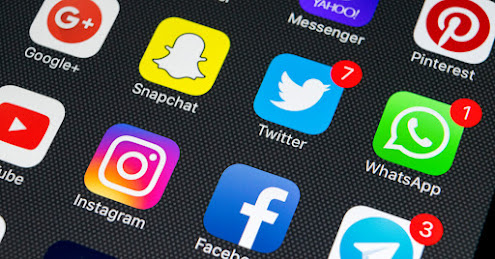Tech giants try distancing themselves from Facebook
TikTok, Snapchat and YouTube are the latest
technology giants to have been quizzed by U.S. senators over concerns about
their youngest users' safety.
During nearly four hours of questioning, on
Monday, they tried to differentiate themselves from Facebook, which has faced
increasing scrutiny from politicians in recent months.
But they were told "Being different from Facebook is
not a defence."
"That
bar is in the gutter. It's not a defence to say that you are different."
In his opening remarks, senator Richard
Blumenthal added "We're hearing the same stories of harm. The
problem is clear - big tech preys on children and teens to make more
money."
"Everything
you do is to add users, especially kids, and keep them on your apps.
"This
is for big tech a big tobacco moment.
"It
is a moment of reckoning.
"There
will be accountability - this time is different."
'CAMERA
COMPANY'
Facebook, accused of harming children's mental
wellbeing, has faced increasing calls for regulation.
But Snapchat told senators it did not belong
in the same category.
"Snapchat
was built as an antidote to social media," Snap global-public-policy
vice-president Jennifer Stout said.
"In
fact, we describe ourselves as a camera company."
TikTok public-policy head Michael Beckerman,
meanwhile, told the hearing"TikTok is not a social network
based on followers.
"You
watch TikToks, you create them."
But TikTok has faced accusations its algorithm
serves harmful content to its teenage users, such as weight-loss videos or
dangerous pranks.
'ADDICT'S
NARRATIVE'
The hearing follows Facebook whistleblower
Frances Haugen's document leaks to the Wall Street Journal, which include
claims the parent company was aware of the 'toxic' impact Instagram was having
on teenage girls.
She said Facebook's own research had described
one problem as "an addict's
narrative" - where children were unhappy but could
not control their use of the app or feel like they could stop using it.
But Facebook boss Mark Zuckerberg said the
platform had made efforts to fight harmful content.
"We
care deeply about issues like safety, wellbeing and mental health," he
said in a letter posted on his Facebook page.
"It's
difficult to see coverage that misrepresents our work and our motives."
MAIN
SHIELD
Senators also have growing concerns about both
censorship and the spread of misinformation.
And some say legislation protecting social
networks from being sued - known as Section 230 - needs to be revisited.
Originally seen as a way to protect internet
providers such as BT or Comcast, it has become the main shield for huge sites
such as Facebook, Twitter, and YouTube, which cannot possibly review every post
from their users before publication.
However, many US politicians claim the
legislation is outdated and social networks must be held accountable.








No comments